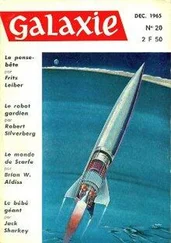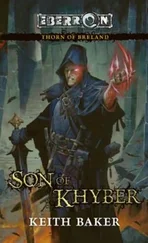"Great," I said. "I'm on my own, all of a sudden. This wasn't a case I exactly lobbied you for, if you remember. I took it because you said you needed help."
"And I still do." He winked. "We're waiting on a helicopter from Mass General. Tess will be flown to their ICU for observation and treatment. Julia's going along for the ride, not Darwin. He meets her there tomorrow."
"So if I had a few questions for Julia, I should get to Boston sooner rather than later," I said.
"That sounds right," Anderson said. "Once Bishop lands in Beantown, I'd head back here to touch base with Claire and Garret. She was home alone with Tess during the funeral, and he strikes me as one very angry young man."
"Not a bad plan," I said.
"For a guy abandoning you." He looked out over the hospital's expansive lawn. "You know, I wanted to give Billy a real chance. He just didn't read like a killer to me." He looked at me. "I think I may have read him wrong."
"Maybe," I said. "Maybe I did, too. But my gut tells me to dig deeper."
"Then that's what you'll…" He caught himself. "That's what we'll do."
As I waited for a space to open up on the ferry back to Hyannis, three ferries came in carrying some of the state troopers North Anderson had requested for the manhunt. More than twenty drove off in cruisers, SUVs, and ATVs. Reporters from local networks, and a few of the nationals, had traveled on the same boats. I spotted R. D. Sahl from New England Cable News, Josh Resnek from the Independent News Group, and Lisa Pierpont from Chronicle TV, all cozying up to Jeff Cooperman, from Dateline NBC. The skies hosted not only the usual commuter planes but more than one State Police helicopter, no doubt fueled to crisscross the hidden forests and ponds and cranberry bogs that make up the Nantucket Moors, better known as the Commons.
On any day in late June, Nantucket has no shortage of celebrities strolling down Main Street, but the Bishop tragedy was one of those island events that felt like it might resonate for generations. People who were not impressed by many things seemed to want to be part of the spectacle. Or perhaps, collectively and unconsciously, they were intent on making it into a spectacle, draining it of its terror and tragedy, in order to tame it into an entertainment event that could fit neatly inside a twenty-inch television. Then it could be labeled on-screen, over a ten-second clip of ominous, computer-generated music: "Infanticide on Nantucket: Day Four." The murder of a baby and attempted murder of another would be inscribed in something as innocuous as TV Guide.
I finally made it onto the 3:00 p.m. ferry, which landed me in Hyannis at 4:40 p.m. I caught the 5:00 WRKO news broadcast, driving up Route 3. The Bishops were the lead story. About fifteen seconds were devoted to the facts of the case, and the next minute or so to Darwin Bishop's billionaire lifestyle. Money sells better than murder and almost as good as sex. If the press had only known about Bishop sleeping with Claire Buckley, we might not have heard any other news for days.
North Anderson was interviewed at the end of the piece and said the department was "still investigating," but had identified a lead suspect. He explained that the individual's name was being withheld because he was a minor.
I got to Mass General at 5:50 p.m. and headed to the Pediatric Intensive Care Unit-PICU, for short.
Few places could inspire more reflection. The space looks like a miniature mall from hell, with tiny glass storefronts along all four walls. Each room holds a child at risk of death or awaiting certain death. The nurses' station sits at the center, a kiosk of pathos, with monitors beeping out the weak rhythms of hearts meant to beat strong for the next seventy or eighty years. Below the monitors, a row of looseleaf charts holds a collection of short stories detailing God's limitations, with the first names of patients written on white tape along the bindings.
I found Tess's name and matched the number above her chart with one posted outside the furthest room to my right. Just as I did, I noticed John Karlstein, the pediatrician in charge of the intensive care unit, walking toward the nurses' station from one of the other rooms. He spotted me, too, and headed over.
Karlstein is a huge man, with a full beard, who stands six foot four in his trademark black alligator cowboy boots. He had been hired when the previous PICU director refused to dance to the tune of managed care companies and was eased into a full-time teaching position. Since then, the PICU had become a cash cow. "How are you, Frank?" he said in his bass voice. "It's been a while."
"Okay. You?"
"Can't complain," he said. "We're full. That's the good news. The bad news is that everybody's length of stay keeps getting shorter and shorter."
I nodded. "I guess it depends how you look at it-from our side of the bed, or the patients'."
He smiled, not seeming to take any offense. "I look at it the end of every month to make sure we're meeting our projections. We're on life support ourselves." He slapped my shoulder. "Someone file a psych consult?"
"Not this time. I'm involved in the Bishop case-forensically," I said.
"I didn't know you were back in that game."
"I'm not. A friend of mine with the Nantucket Police called me in. I took this one case."
"I can see why," Karlstein said. "What a story, huh? First one twin, now the other. And this guy Bishop is a billionaire. Brilliant, they say. A financial genius."
"That's the word," I said. I nodded toward Tess's room. "How's she doing?"
"The baby?"
"Right."
Karlstein's face turned serious. His left eye closed halfway, a reflex that seemed to kick in whenever his intellect engaged. As much as John Karlstein watched the bottom line, and as much as that could get under my skin, he was still one of the best pediatric intensivists in the world. Maybe the best.
"Here's the deal," he said. "The nortriptyline is a cagey sonofabitch, especially in children. After overdose, you can still see fatal cardiac arrhythmias crop up days later. Tess's QRS interval was point fourteen seconds, which you know is too long. The electrical impulses traveling through her heart are still sluggish. That means she's still very much at risk. We've done what we can-meaning large-volume gastric lavage, followed by charcoal to really go after any pill fragments or trace medicine still in her gut. I don't think they were aggressive enough with that down on the island."
"It's a small hospital," I said.
"No crying over spilt milk." He winked. "The only other thing that worries me is whether there could be another toxin in her system that wouldn't show on the blood and urine screens."
Plenty of substances don't turn up on toxic screens unless you go looking for them, with precise chemical probes.
"Do her symptoms suggest another poison?" I said.
"No, but I don't want to be blindsided by anything." He glanced over at Tess's room. "We've got her monitored, on all the right IVs, crash cart one foot from the bed." He looked at me with the kind of brash confidence everyone should pray for in a doctor. "No fucking way I'm letting this kid go, Frank. Period."
Doctors don't pat each other on the back much, but I was moved by Karlstein's determination. "She couldn't be in better hands," I said. "Not for all the money in the world."
Karlstein wasn't a man to take a compliment. "She's where the chopper dropped her off." He turned serious again. "I don't want to mix metaphors here. I know you're working on the investigation. But you might consider taking a quick look at the mother for us. She's not dealing well."
"Tell me what you mean."
"I just have a bad feeling about her. She hasn't said more than a couple words since she arrived, which is understandable-shock or whatever-but she's glued to the bedside in a way that worries me. She hasn't left for more than a minute. Hasn't eaten. No phone calls. Not a question about her daughter's care." He paused. "I guess none of this is very specific data, but she reads to me like somebody about ready to lose it."
Читать дальше












